This post contains affiliate links from which I may receive a small commission, at no extra cost to you. In no way does this affect my opinion or the information I provide on the product. Please read my disclaimer for more info.
It’s no secret that the modern, Western diet can be detrimental to your health. It contains way too many processed foods and a lot of bad fats and sugars.
It’s also very calorie-dense all while being poor in nutrients. These are all facts you probably know. But there’s also something else to watch out for— something that you’ve most likely never heard of before. I’m talking about advanced glycation end products. What?
That’s right, these little compounds form in heat-processed foods and are highly inflammatory. But the good news is that you can avoid them.
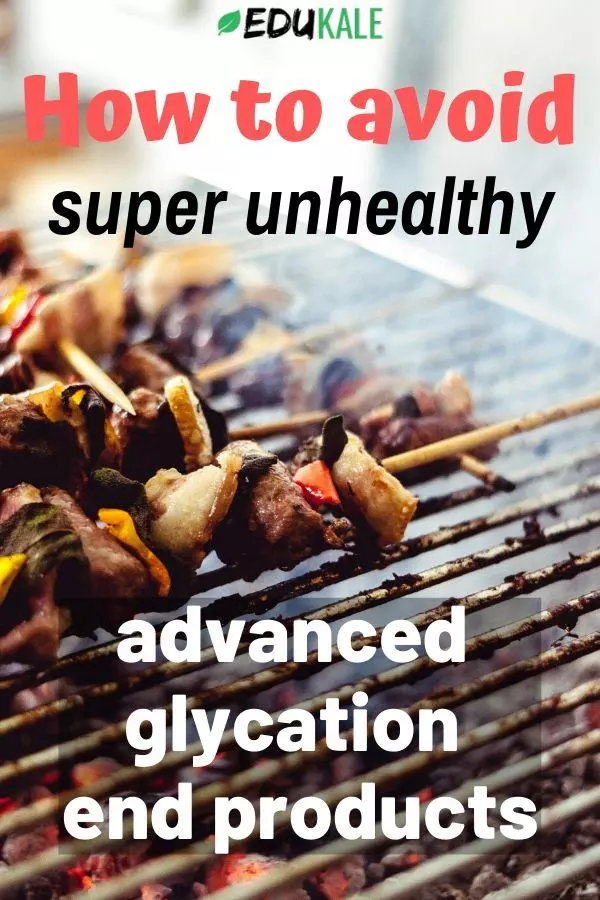
What are advanced glycation end products?
Advanced glycation end products (AGEs) are created when proteins or fats combine with sugars in the blood. They can also form in certain foods, especially those that have been exposed to high temperatures. This impacts normal cell function, leading to quicker damage. While AGEs accumulate naturally with aging, your body is generally able to eliminate them. However, if you consume too many, it could have trouble keeping up. 1
Where do you find them?
Advanced glycation end products are naturally present in uncooked animal foods, such as red meat, certain cheeses, butter, or fried eggs. You can also find them in fatty foods such as mayonnaise, oils, and nuts. Processed sugary items, such as candy and cakes, also contain AGEs.
Carbohydrates, and more specifically foods such as grains, legumes, bread, and fruit contain the least amount of AGEs. Vegetables and milk are also among the lowest in AGES. 2 This amount is also related to cooking temperature and cooking time.
Broiling (exposing the food to direct radiant heat, like grilling on the barbecue) and frying foods give the highest AGE levels. Baking, roasting, and toasting also raise your intake of AGEs. 3
Why are advanced glycation end products bad?
An excess of advanced glycation end products can enhance oxidative stress and inflammation. 4
These compounds have also been linked to aging. They play a role in the development of diseases such as diabetes, Alzheimer’s, or heart disease. Studies in mice have shown that dietary AGEs are associated with atherosclerosis and kidney disease.
Conversely, restricting these compounds prevents these diseases, as well as diabetes. Limiting dietary AGEs also improves wound healing as well as insulin sensitivity, and lengthens lifespan.
In humans, AGE restriction reduces markers of inflammation and oxidative stress. Chronic inflammation is a general cause for many diseases, and can damage your whole body. In short, avoiding food containing AGEs could help delay chronic diseases and aging. 5
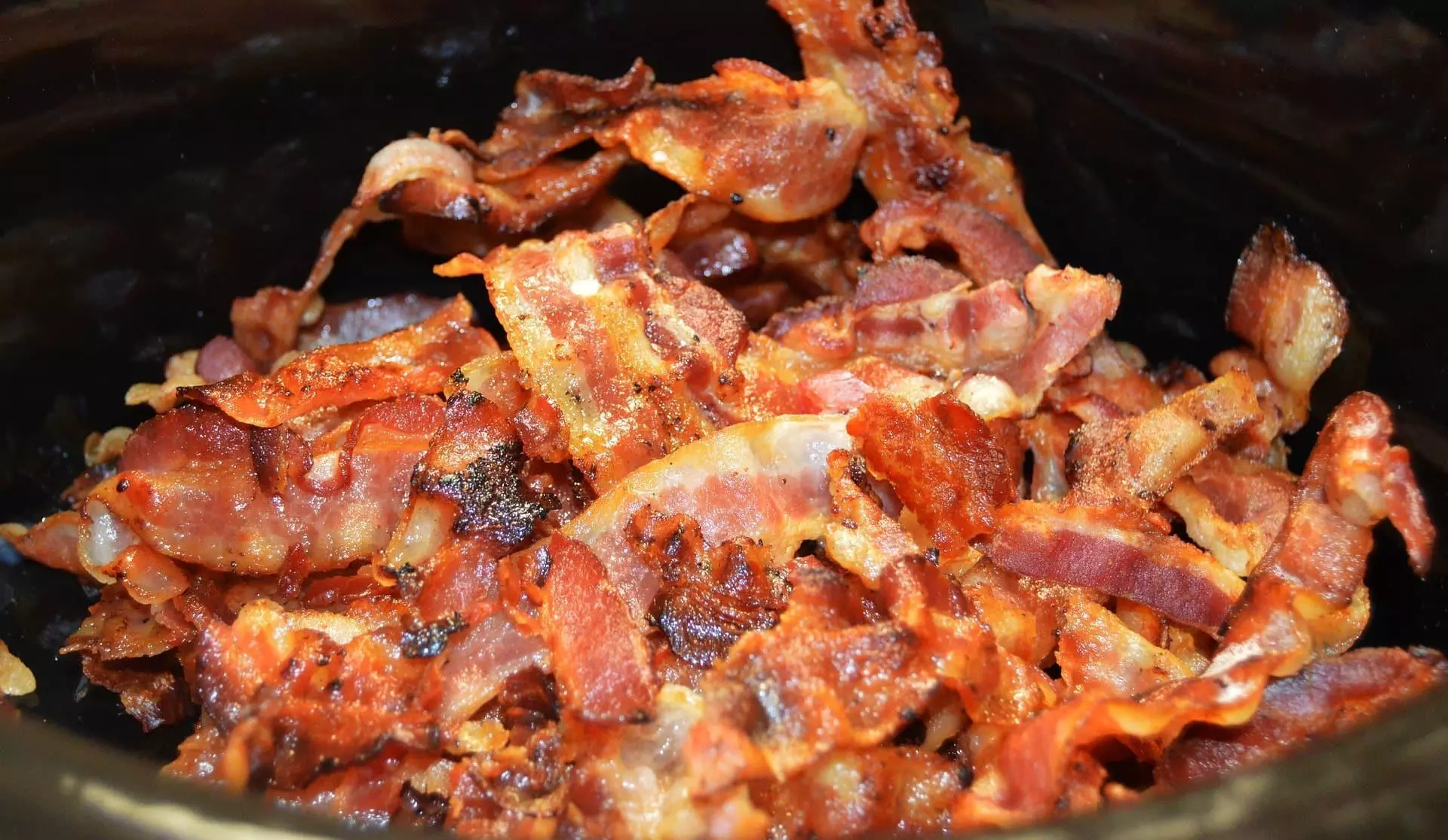
How can you avoid them?
Limiting foods high in AGEs would be an excellent start. While there are currently no clear guidelines on what would be a safe advanced glycation end product intake, a high-AGE diet is often seen as anything over 15,000 AGE kilounits (kU) daily, 15000 kU being the average consumption in New-York. Therefore, anything under that is low. Here are some examples of different foods with high AGE levels for a standard serving size. 6
Foods with high AGE levels:
- 13 grams of fried bacon: 11,905 kU
- 90 grams of
- broiled frankfurter beef: 10,143 kU
- McDonald’s chicken nuggets: 7,764 kU
- chicken breast with skin: 7,420 kU
- 100 grams of thin-crust pizza: 6,825 kU
- 90 grams of
- broiled beefsteak: 6,731 kU
- sautéed tofu: 5,289 kU
- 30 grams of
- soft cream cheese: 3,265 kU
- roasted cashews: 2,942 kU
- peanut butter: 2,255 kU
- roasted almonds: 1,995 kU
- 1 large fried egg: 1,237 kU
Therefore, limit the above foods and more generally meat, animal products, and processed foods to avoid ingesting too many AGEs. Prefer foods such as grains, legumes, bread, pasta, vegetables, and fruit.
In addition, an efficient way to reduce your intake of foods high in AGEs is to change your cooking methods. Cooking with moist heat, using shorter cooking times, and opting for lower temperatures help keep AGE formating low. For example, stewing, boiling, and steaming are better cooking options than grilling, broiling, and frying.

You can also marinate meat and other foods high in AGEs in acidic solutions, such as lemon juice and vinegar. The acidity reduces the number of AGEs in the foods.
Furthermore, some elements such as antioxidants and plant phenols can reduce AGE formation and their negative health effects. 7
By eating plenty of fruit and vegetables, you can limit the effects of AGEs.
Finally, exercise is also beneficial for reducing AGE levels. A study showed that women who exercised more (performed a higher number of daily steps) had decreased AGE levels compared to those who moved less.
Advanced glycation end products in conclusion
Advanced glycation end products are compounds that form naturally with aging and are present in certain foods. While your body can generally eliminate them, modern diets contain abnormally high AGE levels. AGEs are associated with many health issues, such as diabetes, kidney diseases, or Alzheimer’s.
Thankfully, you can easily reduce your AGE levels. Choose whole foods such as grains, legumes, fruits, and vegetables rather than processed foods and meat. Change up your cooking methods for healthier ones like boiling and steaming with lower temperatures, less cooking time, and more humidity. Finally, make sure to stay active!
-Lucie
Had you heard about advanced glycation end products before?
If you’re interested in nutrition, its impact on our health, and the science behind it, you should definitely read How Not to Die. In this book, Doctor Michael Greger, founder of Nutrition Facts, examines the top causes of death in America and explains how your diet can prevent— and in some cases even reverse— them. His advice is all backed by science and he writes in a very clear and entertaining way. This book isn’t a list of what you already know. It will teach you the keys to living a long healthy life, in a simple and practical way, and without spending fortunes on supplements and pills!
PLUS if you want to take it a step further, you can check out the How Not to Die Cookbook to implement the advice easily!

Welcome!
I'm Lucie, the nutritionist behind Edukale! If you'd like to learn more about me, click HERE !
Read More!
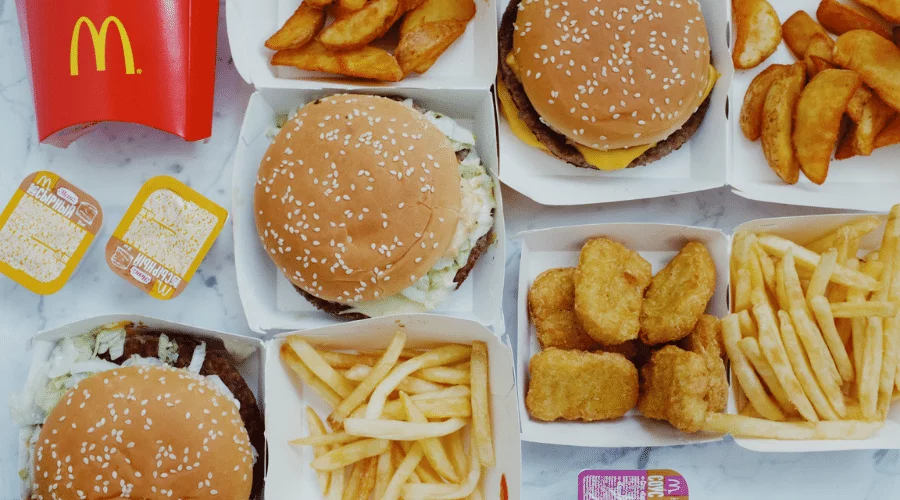
The truth about processed foods
You’ve probably heard that it’s best to reduce your intake of “processed foods” for healthy eating, and increase your intake of whole foods for optimal health.

The Best Foods to Fight Fatigue
Do you feel like you’re always tired and that you need multiple coffees to get you through the day?

how to find the balance between healthy eating and dieting
It can be hard to find the right balance between healthy eating and dieting without becoming obsessed with food.

Can you use food as medicine?
“Let food be thy medicine, and let medicine be thy food.” We’re all familiar with this quote attributed to Hippocrates, and we all know the huge impact our food choices have on our health.

How to finally stop overeating for good!
Overeating means eating past your body’s actual needs, and it can be rather uncomfortable.
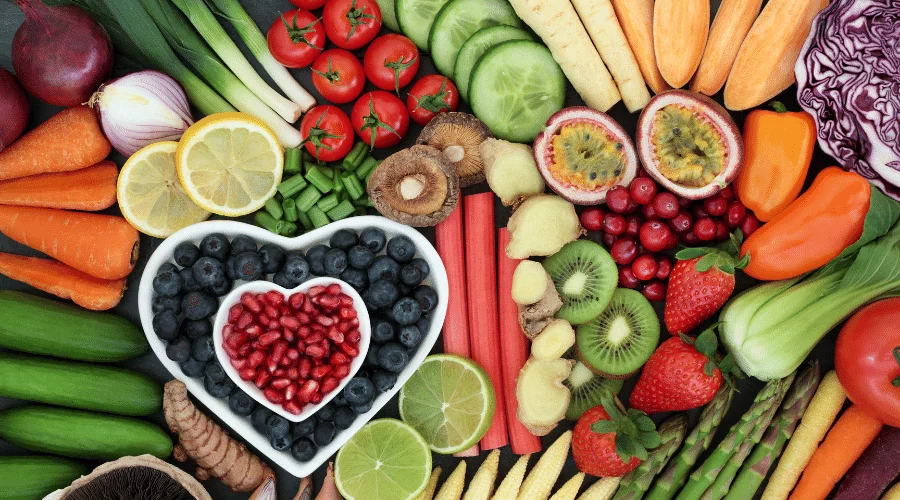
The anti-inflammatory diet: get rid of inflammation
You’ve certainly heard about the anti-inflammatory diet before and the benefits it could have on your body.
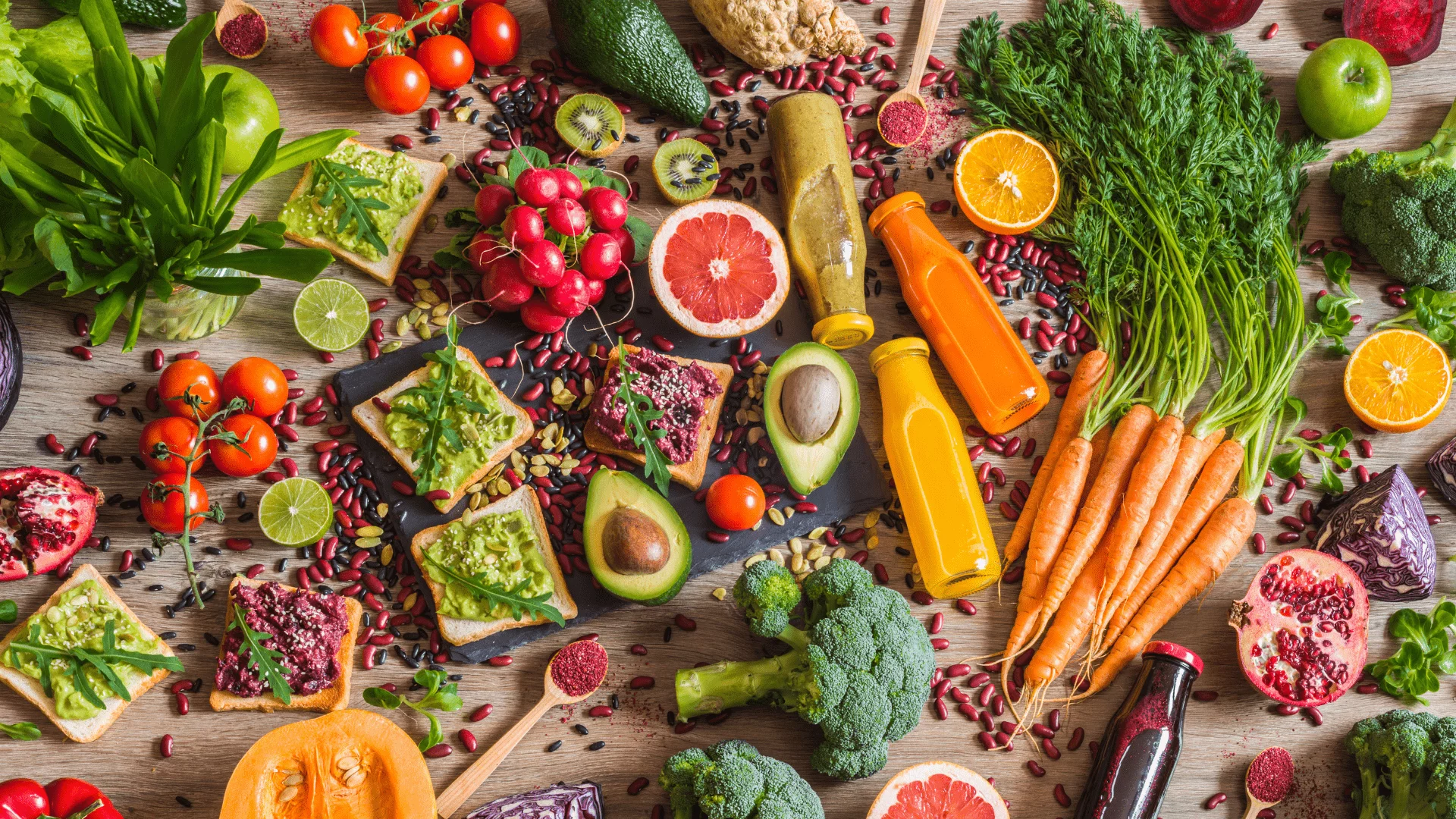
The complete beginner’s guide to veganism
Even though you can absolutely be healthy on a diet that includes animal products, the scientific consensus shows that increasing your consumption of plant-based foods is what is best for health.

Physical vs emotional hunger—learn the difference
You may be aware that physical hunger is not the only type of hunger that exists. There are actually two main types of hunger: physical hunger and emotional hunger



Comments are closed.